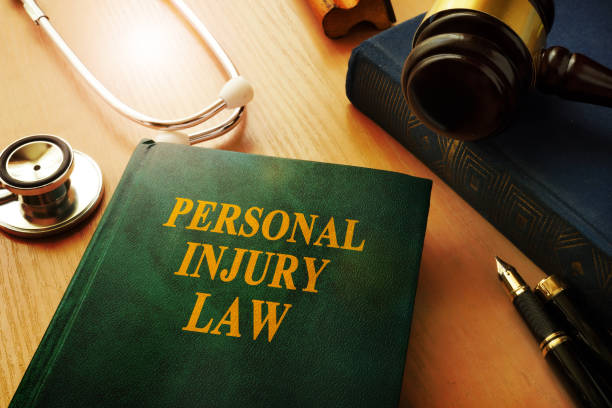What Does a Personal Injury Lawyer Do? Understanding Their Role and Importance
If you’ve been injured in an accident, you may be facing medical bills, lost wages, and emotional stress. A personal injury lawyer can help you navigate these challenges by fighting for the compensation you deserve. But what exactly does a personal injury lawyer do, and why might you need one? This guide explains their role, responsibilities, and value, addressing common misconceptions and highlighting how they work to protect your rights. Whether you’re dealing with a car accident or a workplace injury, understanding the importance of a personal injury lawyer can empower you to make informed decisions.
What Is a Personal Injury Lawyer?
A personal injury lawyer is a legal professional who represents individuals harmed due to someone else’s negligence or intentional actions. Their primary goal is to secure fair compensation for their clients, covering losses like medical expenses, lost income, and pain and suffering. These lawyers specialize in personal injury law, which covers a wide range of cases, including:
- Car accidents: Collisions caused by reckless or distracted drivers.
- Workplace injuries: Accidents due to unsafe conditions or employer negligence.
- Slip and fall incidents: Injuries from hazardous property conditions.
- Medical malpractice: Harm caused by negligent healthcare providers.
- Product liability: Injuries from defective or dangerous products.
Personal injury lawyers are trained to handle the complexities of these cases, ensuring victims aren’t left bearing the financial and emotional burden of someone else’s mistake. By focusing on this specific area of law, they bring expertise that can make a significant difference in the outcome of your case.
What Are the Main Responsibilities of a Personal Injury Lawyer?
Personal injury lawyers take on a variety of tasks to build a strong case and secure the best possible outcome for their clients. Their responsibilities include:
- Investigating the Case: Lawyers gather evidence such as police reports, medical records, witness statements, and photos of the accident scene. They may also consult experts, like accident reconstruction specialists, to strengthen your claim.
- Negotiating with Insurance Companies: Insurers often offer low settlements to minimize payouts. A lawyer negotiates on your behalf, using evidence to demand fair compensation that reflects your losses.
- Filing Legal Documents: From drafting demand letters to submitting court filings, lawyers handle the paperwork required to pursue your claim, ensuring deadlines and legal requirements are met.
- Representing You in Court: If a fair settlement isn’t reached, your lawyer may take the case to trial, presenting evidence and arguments to a judge or jury.
- Advising on Strategy: Lawyers assess the strengths and weaknesses of your case, guiding you on whether to settle or proceed to court based on your best interests.
These tasks require a deep understanding of state laws, insurance policies, and courtroom procedures, which is why professional representation is often critical in personal injury cases.
Why Do You Need a Personal Injury Lawyer?
Hiring a personal injury lawyer can significantly impact the outcome of your case. Here are key reasons why their expertise is essential:
- Countering Lowball Settlements: Insurance companies may offer quick settlements that don’t cover your full losses, such as future medical costs or long-term pain. A lawyer knows how to evaluate your case’s true value and push for a fair amount.
- Navigating Complex Laws: Personal injury laws vary by state. For example, California has a two-year statute of limitations for most injury claims, while other states may differ. A lawyer ensures your case complies with local regulations and deadlines.
- Maximizing Compensation: Lawyers account for all damages, including medical bills, lost wages, and non-economic losses like emotional distress. Their experience helps secure higher payouts compared to handling claims alone.
- Reducing Stress: Dealing with an injury is overwhelming enough without managing legal paperwork or insurer tactics. A lawyer handles the process, letting you focus on recovery.
- Leveling the Playing Field: Insurers and opposing parties often have legal teams. A lawyer ensures you’re not at a disadvantage, advocating fiercely for your rights.
Without a lawyer, you risk settling for less or missing critical deadlines, which could jeopardize your ability to recover compensation.
How Does the Contingency Fee System Work?
One of the biggest concerns for injury victims is the cost of hiring a lawyer. Fortunately, most personal injury lawyers work on a contingency fee basis, which means:
- No Upfront Costs: You don’t pay any fees unless your lawyer wins or settles your case.
- Percentage-Based Payment: If you receive compensation, the lawyer takes a percentage—typically 30% to 40%—as their fee. This percentage is agreed upon in advance.
- Aligned Incentives: Since the lawyer’s payment depends on your success, they’re motivated to secure the highest possible compensation.
- Additional Costs: Some cases involve expenses like court fees or expert witness costs. These are often deducted from the settlement, but you should clarify this in the fee agreement.
This system makes legal representation accessible, as you don’t need to worry about hourly rates or retainer fees. It also reduces financial risk, as you owe nothing if the case doesn’t succeed. Always review the fee agreement carefully to understand any potential costs, such as filing fees, that may apply.
Take Control of Your Rights
A personal injury lawyer can be your advocate, helping you secure the compensation needed to rebuild your life after an accident. From navigating insurance negotiations to ensuring your case complies with state laws, their expertise makes a difference. Don’t let misconceptions or uncertainty stop you from exploring your options. By learning about your rights and the role of a personal injury lawyer, you’re taking the first step toward protecting your future. If you’re unsure where to start, consider seeking a professional opinion to understand your case’s potential.
